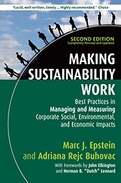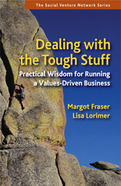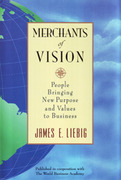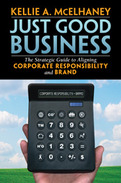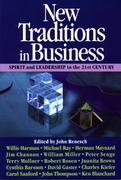Offers a complete guide to the details of implementing and measuring the impact of CSR initiatives
- Updated throughout with new examples and new research
- Offers a complete guide to the details of implementing and measuring the impact of CSR initiatives
- Includes examples of best practices from over 100 organizations
Most companies today have some commitment to corporate social responsibility, but implementing these initiatives can be particularly challenging. While a lot has been written on ethical and strategic factors, there is still a dearth of information on the practical nuts and bolts. And whereas with most other organizational initiatives the sole objective is improved financial performance, sustainability broadens the focus to include social and environmental performance, which is much more difficult to measure.
Now updated throughout with new examples and new research, this is a complete guide to implementing and measuring the effectiveness of sustainability initiatives. It draws on Marc Epstein's and new coauthor Adriana Rejc Buhovac's solid academic foundation and extensive consulting work and includes best practices from dozens of companies in Europe, Asia, North America, South America, Australia, and Africa. This is the ultimate how-to guide for corporate leaders, strategists, academics, sustainability consultants, and anyone else with an interest in actually putting sustainability ideas into practice and making sure they accomplish their goals.
- A comprehensive guide to implementing and evaluating corporate sustainability initiatives
- Combines a thorough grounding in the latest research with the best practices of 100 organizations worldwide, including prominent companies such as Canon, Coca-Cola, Dell, FedEx, General Mills, Johnson & Johnson, Nestle, Starbucks, Warner Brothers
The best practices in corporate social responsibility (CSR) are no longer the exclusive domain of companies like Ben & Jerry's or the Body Shop; now even companies like GE and Wal-Mart are making significant financial and organizational commitments to social and environmental issues. But senior executives are realizing that implementing sustainability is particularly challenging. While a lot has been written on ethical and strategic factors, there is a dearth of information on the practical nuts and bolts of implementation and virtually nothing on how to measure the results.
In Making Sustainability Work, Marc Epstein builds on his influential and highly respected previous work to produce the ultimate how-to guide for corporate leaders, strategists, academics, sustainability consultants, and anyone else with an interest in actually putting sustainability ideas into practice.
Offers personal insights and advice from of some of the most successful socially conscious entrepreneurs in the country
Features dozens of true stories revealing what it’s really like to run a values-driven business—the good, the bad and the ugly
Includes tested tools, techniques and coping strategies for overcoming common and not-so-common challenges
Your business plan is only going to get you so far. When you’re actually running a values-driven business problems come up that you never could have anticipated. And as a mission-driven organization you face issues your more conventional colleagues never have to grapple with. The whole experience can be incredibly isolating and draining.
Margot Fraser and Lisa Lorimer have been there, and they’re here to help. Together with five of their colleagues—including Stonyfield Yogurt founder Gary Hirshberg and former Ms. Foundation president Marie C. Wilson—they offer the kinds of personal insights and seasoned advice you just can’t get in business school. It’s like having a coaching session with some of the nation’s top socially conscious entrepreneurs.
Each chapter of Dealing with the Tough Stuff tackles a particular challenge. How open and honest can you really be with your employees and still run an efficient business? At what point do you seek outside expertise? What do you do when things go terribly wrong? When is it time to leave? The authors and the members of their “advisory board” share their experiences—not just what worked, but sometimes what spectacularly didn’t. Some of these stories are harrowing: a worker getting killed by factory equipment, a supplier embezzling funds, a false accusation of intellectual property theft. Others are simply day-to-day conundrums: meeting payroll when you’re always in debt, deciding when and how to expand in a responsible way, balancing business needs with your commitment to the triple bottom line. At the end of each chapter, Lorimer and Frasier draw on the stories to offer practical "survival suggestions" that can guide readers through similar situations.
This is a book that readers can look to for affirmation, hope and tools. Others have been through what you’re going through, if not worse. They made it and so can you—because they’re going to show you how they did it. No book can cover every challenge that might arise, but if you learn from the attitudes, techniques and coping mechanisms these seasoned leaders offer, you’ll get through the tough stuff with your sanity and your business intact.
• Offers personal insights and advice from of some of the most successful socially conscious entrepreneurs in the country
• Features dozens of true stories revealing what it’s really like to run a values-driven business—the good, the bad and the ugly
• Includes tested tools, techniques and coping strategies for overcoming common and not-so-common challenges
Your business plan is only going to get you so far. When you’re actually running a values-driven business problems come up that you never could have anticipated. And as a mission-driven organization you face issues your more conventional colleagues never have to grapple with. The whole experience can be incredibly isolating and draining.
Margot Fraser and Lisa Lorimer have been there, and they’re here to help. Together with five of their colleagues—including Stonyfield Yogurt founder Gary Hirshberg and former Ms. Foundation president Marie C. Wilson—they offer the kinds of personal insights and seasoned advice you just can’t get in business school. It’s like having a coaching session with some of the nation’s top socially conscious entrepreneurs.
Each chapter of Dealing with the Tough Stuff tackles a particular challenge. How open and honest can you really be with your employees and still run an efficient business? At what point do you seek outside expertise? What do you do when things go terribly wrong? When is it time to leave? The authors and the members of their “advisory board” share their experiences—not just what worked, but sometimes what spectacularly didn’t. Some of these stories are harrowing: a worker getting killed by factory equipment, a supplier embezzling funds, a false accusation of intellectual property theft. Others are simply day-to-day conundrums: meeting payroll when you’re always in debt, deciding when and how to expand in a responsible way, balancing business needs with your commitment to the triple bottom line. At the end of each chapter, Lorimer and Frasier draw on the stories to offer practical "survival suggestions" that can guide readers through similar situations.
This is a book that readers can look to for affirmation, hope and tools. Others have been through what you’re going through, if not worse. They made it and so can you—because they’re going to show you how they did it. No book can cover every challenge that might arise, but if you learn from the attitudes, techniques and coping mechanisms these seasoned leaders offer, you’ll get through the tough stuff with your sanity and your business intact.
1994
In our time of dramatic worldwide change, can business leaders meet the challenges of the marketplace and the needs of people, communities, and the planet? Merchants of Vision profiles 40 business leaders who are successfully working to do just that.
James Liebig interviewed dozens of business women and men in 70 organizations from 14 countries. He found executives, entrepreneurs, CEOs, and consultants who recognize business's pervasive global influence and have found ways to use that influence to affect positive change in people's lives and meaningful growth in their businesses. In Merchants of Vision they share their beliefs, experiences, and creative actions.
Visionary yet down-to-earth, these real-life portraits provide viable business strategies for:
o enhancing social equity,
o protecting the natural environment,
o fostering human creativity,
o serving higher purposes, including spiritual, service, and community values,
o behaving ethically,
o providing transformational leadership.
Representing a variety of business enterprises in the United States, Latin America, Europe, and Asia, innovators profiled include, for example:
o Elliot Hoffman, president of Just Desserts in San Francisco;
o Jacqueline Cambata, president of Phoenix Chemical in Virginia;
o Mara Adela Palcos, director of Rio Abierto Institute in Buenos Aires;
o Marjorie Kelly, editor and publisher of Business Ethics magazine;
o Eckart J. Wintzen, president of BSO/ORIGIN, computer custom software services in The Netherlands;
o Joe Jaworski, head, Business Environment Section, Shell International Petroleum Co. Ltd., in London, England;
o Jagdish Parikh, managing director, Lemuir Group of Companies in Bombay, India;
o Carol Frenier, president, The Advantage Group, Inc., specialty advertising in Vermont;
o Meryem Le Saget, directeur, Institut de L'Expansion, Group Expansion, business seminars and conferences in Paris, France;
o Heini Lippuner, chairman, executive committee, Ciba-Geigy Limited, chemical manufacturing in Basel, Switzerland;
o Robert V. Adams, president of Xerox Technology Ventures in California.
These are people of action and integrity who sustain themselves with the creative friction between their idealism and their knowledge of the real world. Their experiences-addressing issues of personal responsibility and product quality, expanding markets and shrinking natural resources, technological advancement and cultural preservation-reveal ways businesses must adapt to survive, thrive, innovate, and lead.
- Published in cooperation with the World Business Academy, an international network of progressive business leaders committed to using their business expertise to make a positive difference in the world
- Practical and inspiring portraits of 40 business men and women "walking their talk" by integrating their ideals in the world of commerce
2008
Kellie McElhaney, one of the world's leading experts on CSR strategy, offers a detailed process for seamlessly integrating your CSR efforts into your overall business objectives. “My goal,” she writes, “is not to tell you how to force your CSR strategy to be more authentic. My goal is actually to help you develop a CSR strategy that is authentic because of its natural linkage to your company's mission, vision, and values.”
Just Good Business lays out a framework of seven principles that help you develop CSR initiatives that make good business sense and tell the world about them in ways that are compelling and memorable. McElhaney offers a wealth of practical advice on implementation, including how to measure the results of your CSR.
McElhaney draws on over ten years of previously unpublished CSR consulting engagements inside companies grappling with developing strategically aligned CSR initiatives. The book's case vignettes, examples, best practices, and strategic recommendations span a host of industries and sectors and draw upon her work with leading corporations, such as McDonald's, Nokia, Levi Strauss, Digicel, Birkenstock, Gap Inc., HP, and Pepperidge Farm.
Savvy companies carefully manage their brand in every area. CSR shouldn't be any different. Just Good Business offers a detailed blueprint that any company can use to ensure that its CSR strategy delivers significant, quantifiable, bottom-line benefits.
A fundamental transformation-what many are calling a "paradigm shift"-is underway today in our business and work world. This transformation goes beyond the traditional quest for productivity and profit to embrace such issues as achieving more congruence between our spiritual values and our work, creating a more caring and loving workplace, empowering people to unleash their full creativity and vision at work, and recognizing the global and social responsibilities of business.
This book brings together fifteen of the foremost visionary thinkers about these new business traditions. These visionaries include leading futurists, such as Willis Harman; authors of important new books, such as Peter Senge, author of The Fifth Discipline: The Art and Practice of the Learning Organization; leaders of influential organizations in promoting new paradigm thinking, such as Charles Kiefer, chairman of Innovation Associates; and creators of innovative business and academic programs, such as Michael Ray, developer of the path-breaking Stanford University course on "New Paradigm Business." New Traditions in Business is the first collection in one book of their seminal writings.
Part I describes the historical roots and current signs of the transformation o how the new paradigm differs from traditional business practice o the shifts in human consciousness that form the context for the transformation o the role of spiritual values, vision, and community in the new business culture.
Part II details specific strategies for business transformation: new leadership roles to build learning organizations o the qualities of truly healthy companies o fostering community in corporations o steps for putting global thinking into practice in business o developing and communicating visionary leadership o creating empowered workplaces oenabling people to tap their full creative powers o keys to practicing ethical behavior in business.
2010
Shows how we can join the conversation online and share our stories to help make the world a better place.
- Shows how both activists and the casually progressive can leverage the power of social networks for social change
- Helps readers maintain credibility, establish new connections, deal with common fears, and have a good time
- Authoritative but aggressively non-technical-like talking to a real person with a great sense of humor who really knows her stuff
Social networks can be so much more than a way to find your high school friends or learn what your favorite celebrity had for breakfast. They can be powerful tools for changing the world. With Share This! both regular folks of a progressive bent and committed activists can learn how to go beyond swapping movie reviews and vacation photos (not that there's anything wrong with that).
At the moment the same kinds of people who dominate the dialog off-line are dominating it online, and things will never change if that doesn't change. Progressives need to get on social networks and share their stories, join conversations, connect with others-and not just others exactly like themselves. It's vital to reach out across all those ethnic/gender/preference/class/age lines that exist even within the progressive camp. As Deanna Zandt puts it, "creating a just society is sort of like the evolution of the species-if you have a bunch of the same DNA mixing together the species mutates poorly and eventually dies off."
But there are definitely dos and don'ts. Zandt delves into exactly what people are and are not looking for in online exchanges. How to be a good guest. What to share. Why authenticity is more important than just about anything, including traditional notions of expertise or authority. She addresses some common fears, like worrying about giving too much about yourself away, blurring the lines between your professional and personal life, or getting buried under a steaming heap of information overload. And she offers detailed, nuts-and bolts "how to get started" advice for both individuals and organizations.
The Internet is upending hierarchies and freeing the flow of information in a way that makes the invention of the printing press seem like an historical footnote. Share This! shows how to take advantage of this unprecedented opportunity to make marginalized voices heard and support real, fundamental change-and, incidentally, have some fun doing it.


